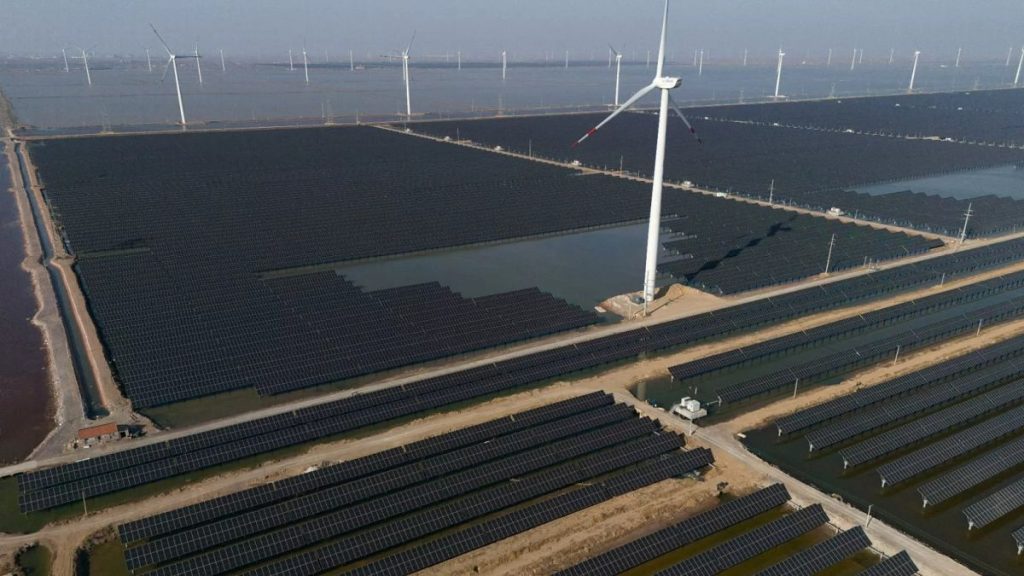A pivot from fossil fuels to clean energy by 2060 would improve energy security and reduce trade risks for most nations, according to a new study.
Lithium, nickel, cobalt, copper, and rare earth minerals are among the prized materials for countries and corporations racing to secure supplies for zero-emission energy systems.
Unlike fossil fuels, natural reserves of these materials are most concentrated in the Global South.
The rush to procure these key resources could mean a shuffling of the geopolitics of energy and global trade, according to the research published in the journal Nature Climate Change.
“Most people are focused on the new stuff that could be a problem and not really considering the security benefits of moving away from fossil fuels,” said Steve Davis, the study’s senior author and a professor of Earth system science at the Stanford Doerr School of Sustainability.
“For most countries in a net-zero emissions system in the future, trading off the reduced dependence on imported fossil fuels and increased dependence on these new materials is actually a win for energy security.”
Nuclear energy and solar power: How countries will reach net-zero by 2060
The scientists behind the study analysed each country’s potential new vulnerabilities under decarbonisation compared to those associated with continued reliance on fossil fuels.
This included building a database of countries with reserves of oil, gas, coal, uranium, biofuels, and any of the 16 materials that are critical for clean energy technologies, along with how the trade of these resources flowed between the countries.
The researchers calculated how much of these resources would be required to meet energy demand in each of the 236 countries in 1,092 different scenarios for reaching net-zero carbon emissions globally by 2060.
The possibile scenarios included more dependence on nuclear energy, for example, or the incorporation of more solar or wind power.
They then created a ‘trade risk index’ based on the availability of domestic energy reserves, the share of demand for a given fuel or material that was met by imports, the economic value of the imports, and a measure of market concentration that is widely used to quantify energy security.
Most countries benefit from deeper cuts to fossil fuel reliance
The researchers found that if all countries maintain their current networks, trade-related risks to energy security would decline on average by 19 per cent in net-zero scenarios.
If countries expand their networks and trade with all resource owners, then trade risks would fall by half on average.
Reducing the need for imported primary materials – whether by making technologies last longer, ramping up recycling, or developing less material-intensive designs – is another way for mineral-poor countries to minimise trade risks while eliminating fossil fuels.
According to the study, trade risks fall on average by 17 per cent if today’s meager recycling rates for critical minerals such as lithium, nickel, and indium were quadrupled.
The key, the authors say, is to avoid putting all your eggs in one basket.
“If you’re importing a large fraction of what you need, that’s a vulnerability. If it’s all from a single other party, there’s a lot of risk that some natural disaster or geopolitical conflict could disrupt that supply,” Davis said. “You want to diversify imports among as many sources as you can.”
The security benefits of diversification have limits, however. The study results indicate that keeping fossil fuels in the mix generally drags down nations’ energy security.
“It is ultimately encouraging that most countries’ trade risks decrease in net-zero scenarios,” the authors conclude, “and that the greatest improvements often occur in the countries which most drastically reduce their reliance on fossil fuels.”

